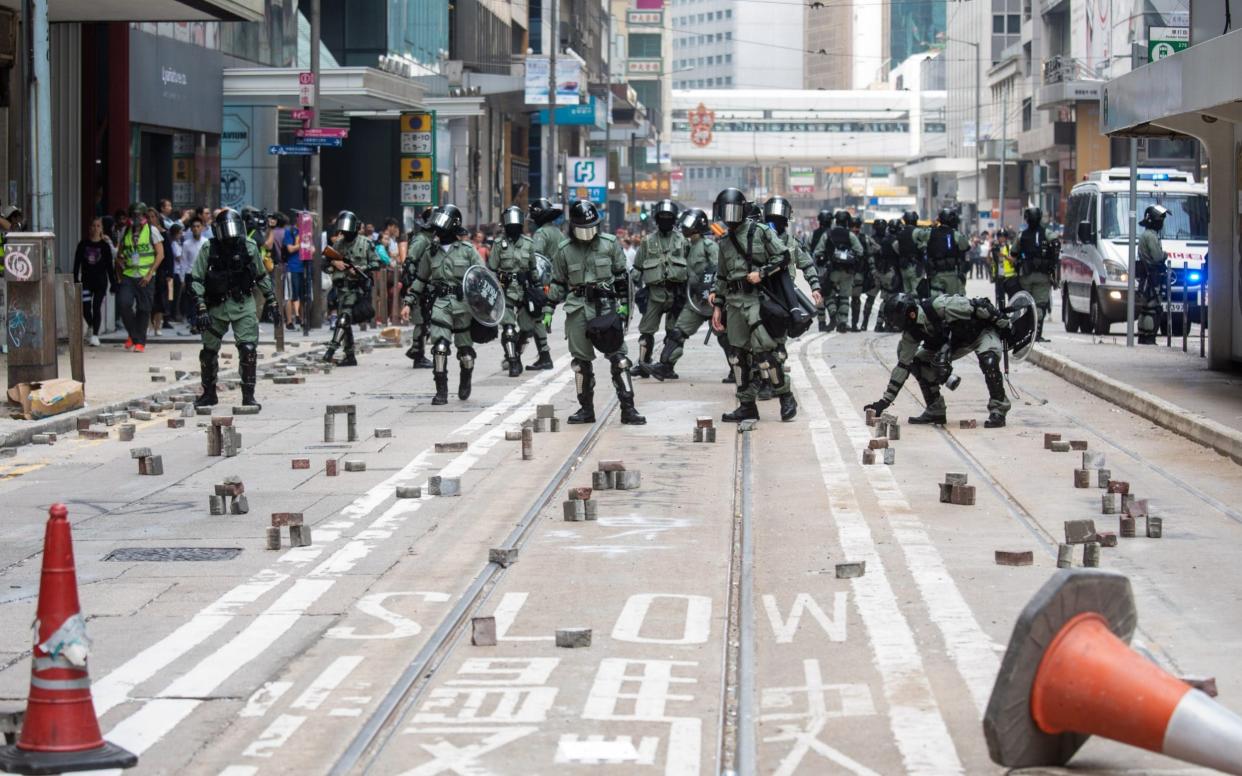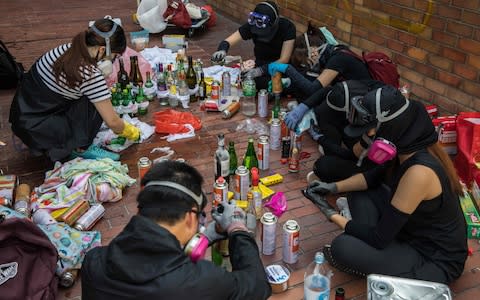Hong Kong protesters barricade themselves in on university campuses

Students at a Hong Kong university last night sealed the exits to search for undercover police as they fortified barricades, setting the stage for another round of violent clashes.
At the Hong Kong Polytechnic University, one of three barricaded by pro-democracy demonstrators, scores of students prepared for confrontation with riot police by stockpiling makeshift weapons including petrol bombs.
Pictures of suspected undercover police were passed around by students and on-the-spot searches carried out amid heightened paranoia that authorities were planning to break the campus sieges that began earlier this week.
The developments came as China's President Xi Jinping warned that protests threaten Hong Kong's "one country, two systems" principle governing the semi-autonomous city.
In rare comments on the violence, Mr Xi said "stopping violence and controlling chaos while restoring order is currently Hong Kong's most urgent task," in comments reported across Chinese state media.

Protesters calling for political reform and a change in leadership again paralysed Hong Kong on Thursday, forcing schools to suspend classes, public transport to halt, and some shops to close.
Protesters at Poly University were last night bedding in as an increasingly tense atmosphere fell across the campus. In the kitchen of a canteen, young protesters cracked eggs to make omelettes as others organised the washing up.
"The atmosphere in the kitchen is happier, but outside in the frontline it is different," said one of the protesters who identified himself as Mr Luk, 40. "In the kitchen, we put up a happy smile, because then the food tastes better."
He added "These kids now, they are fighting for something that our generation used to have."
"When we first got here, we didn't even know each other. Even now, we don't know each others names," a protester identified as "Queen" said. "But it's our sense of community and frustration at the government that brought us together. I guess we have to thank Carrie [Lam, the Hong Kong chief executive] for that."
Protests kicked off in June against an extradition proposal that many worried would send suspects to face unfair trials in mainland China, where the ruling Communist Party controls the courts – 99.9 per cent of cases end in conviction.
Demonstrations have since taken on an anti-China bent, with protesters targeting people and businesses perceived to be pro-Beijing and thus against the protest movement.
They’ve also gone after police, whom protesters meet day and night on the frontlines, as city leaders tasked the force with handling the unrest, rather than make concessions to de-escalate tensions.
On Thursday, an influential state-backed Chinese newspaper tweeted saying the Hong Kong government was expected to announce a weekend curfew, later deleting it after its editors said there was “not sufficient” information to back up the report.
The Hong Kong government later also dismissed the rumours, calling them “totally unfounded” in a statement.
Aside from setting fire to road barricades to disrupt traffic and deter police, protesters have started burning toll booths, buses, and even people.
On Monday, a masked man in black poured gasoline and lit on fire a man who was arguing on a footbridge with protesters; he remains in hospital after suffering burns to 40 per cent of his body.
On Thursday, China also issued new guidelines for “patriotic education,” aimed specifically at young people to forge a stronger national identify, and love and loyalty for the motherland and the ruling Communist Party.

 Yahoo News
Yahoo News 
